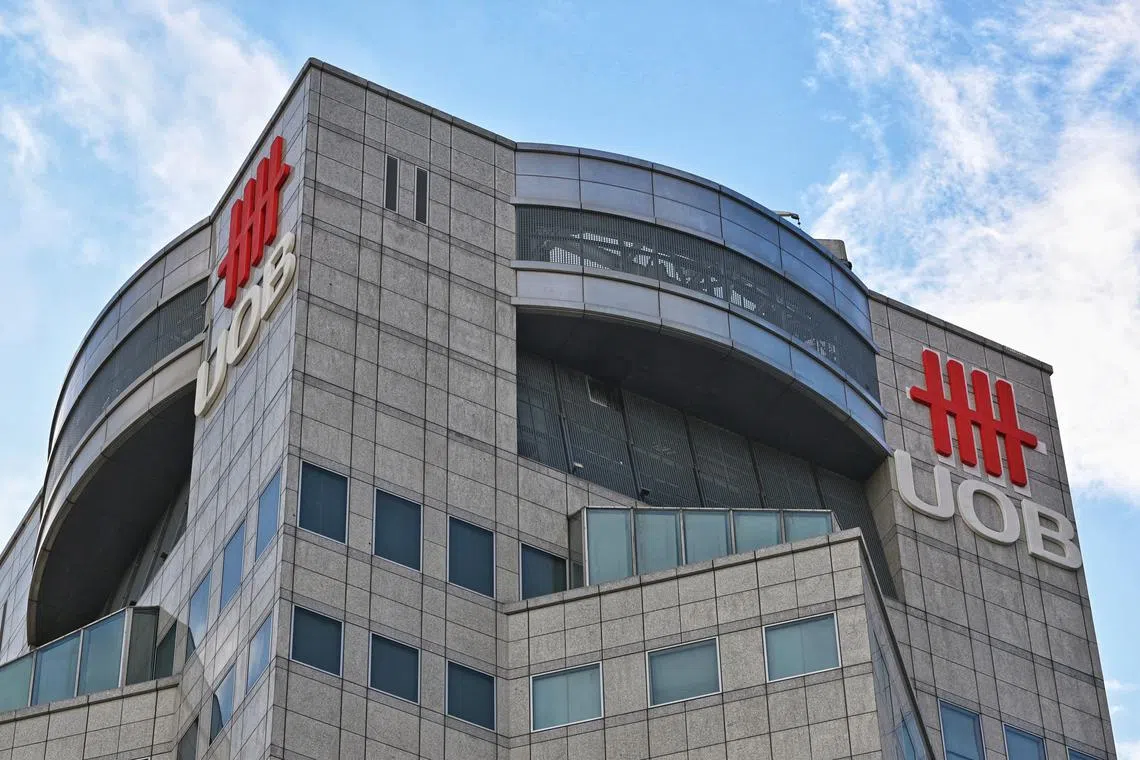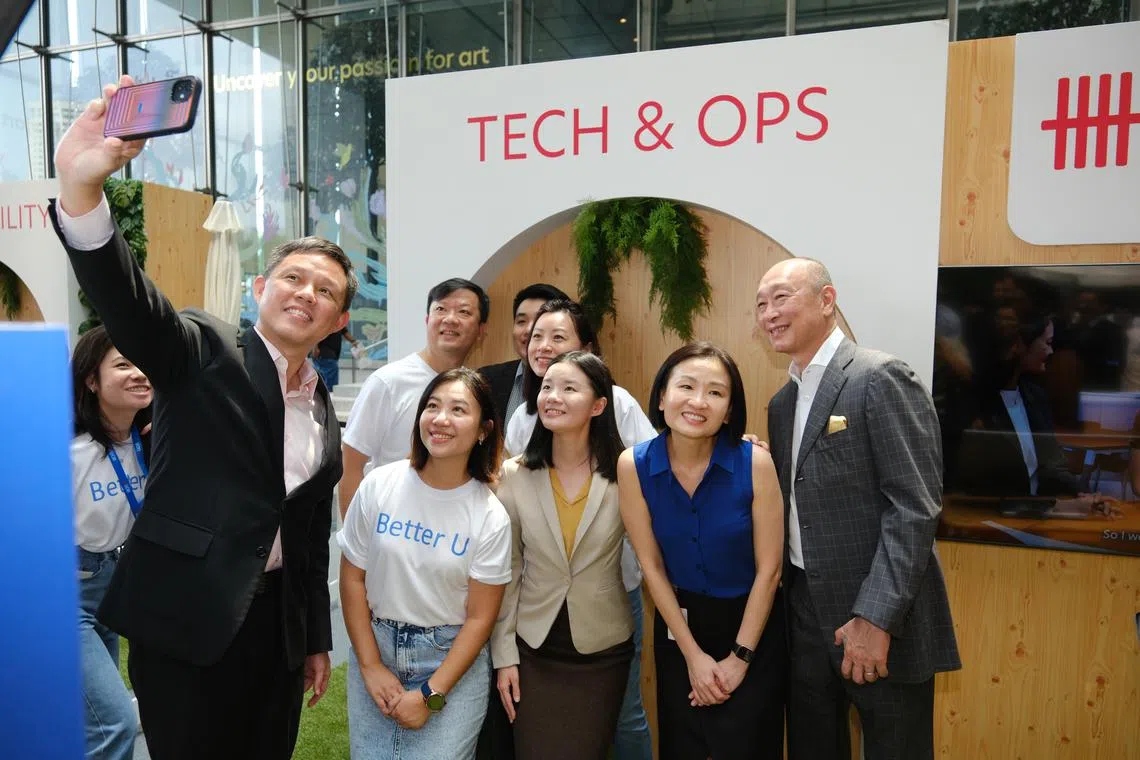Poly, ITE students to be offered stints with UOB under bank’s new work-study programme
Sign up now: Get ST's newsletters delivered to your inbox

Good performers will be offered a full-time position with UOB after completing the programme.
ST PHOTO: CHONG JUN LIANG
SINGAPORE – Polytechnic and Institute of Technical Education (ITE) students will from 2024 have a shot at taking on roles such as assistant relationship manager or credit analyst at UOB for a year, prior to their graduation.
They will also be given the training needed for work in the banking sector during the year-long work-study programme launched by UOB on Thursday in a tie-up with all five local polytechnics and three ITE colleges.
Dubbed U Unleash, the programme is open to final-year students studying hospitality, business and information communications technology, and aims to reach 500 students by 2026.
Participants will be attached to one or two business units, including private banking and commercial banking, as well as technology and operations, during their stint.
Good performers will be offered a full-time position with UOB after completing the programme, and may even be sponsored for further studies by the bank afterwards, if eligible. U Unleash headlines a host of talent attraction and retention moves UOB unveiled at a launch event held at its Raffles Place headquarters on Thursday.
Among the announcements is a new 10,500 sq ft training campus bringing together all of UOB’s training and development programmes under one roof. It will begin operations by the first quarter of 2024.
The UOB Better U Campus will take up around a fifth of the usable area in the Singapore Institute of Management’s Management House compound in Namly Avenue in a partnership with the institute.
Meanwhile, undergraduate children of existing staff will get a new, dedicated internship scheme.
There are benefits for retiring staff too. Those eligible will have medical insurance coverage extended by six months past their retirement date to ensure their seamless transition to retirement, among other changes.
U Unleash is being launched as the wider financial sector here steps up overtures to bring in and groom promising talent from a broader range of educational and professional backgrounds amid growing manpower needs.
Mr Bryan Lim, head of talent and development at UOB, confirmed to The Straits Times that U Unleash would tap the Polytechnic Talent for Finance Scheme, which was launched by the Monetary Authority of Singapore in April.
Under the three-year grant scheme, financial institutions can apply for grants from an $8 million fund to defray the costs of offering internships, apprenticeships and academic sponsorships to polytechnic graduates and students.
Mr Lim said U Unleash will help plug a gap by highlighting the viability of working in the banking sector to those studying in polytechnic and ITE. He noted that not many graduates from the institutions currently apply to work in the sector, despite the array of new job opportunities suited for them.
“Banking is not currently a natural choice, so we feel that if we wait to the point they graduate, then... they are going to continue to apply for the kind of industry that they are familiar with,” he said, adding that U Unleash provides another pipeline of talent beyond existing training programmes for polytechnic graduates.
The launch was held in conjunction with UOB’s four-day Better U employee festival, set to end on Friday.

Education Minister Chan Chun Sing, who was guest of honour, taking a wefie at the launch of UOB’s U Unleash programme on Oct 5.
PHOTO: LIANHE ZAOBAO
Education Minister Chan Chun Sing, who was guest of honour, fielded questions ranging from the importance of skills-based hiring to promoting mental wellness and resilience in students from an audience of UOB staff and interns for almost 50 minutes in a fireside chat.
Mr Chan said the practice of credentialism, or an emphasis on an individual’s formal credentials over relevant skills, arises from employers seeking objective signals of an individual’s capabilities, skills and values.
“But very often, this signal is not coming through in a very sharp way,” he said, adding that employers sometimes are “not very sharp” in looking for the desired signals.
For instance, a human resources practitioner hiring for an engineer may not be aware of the criteria for a good engineer beyond academic grades, while existing engineers on the staff may know what makes a good engineer, but cannot express their needs well enough, he noted.
Mr Tan Guo Jing, who works as a developer at UOB, recently graduated from UOB’s existing year-long technology development programme in August.
The 26-year-old, who graduated from a part-time diploma course in business administration, said he would have wanted to apply for the scheme had it been available earlier.
“I would definitely have taken the programme if I was a student from ITE or polytechnic, as this would give me an advantage and experience in the banking industry.”


